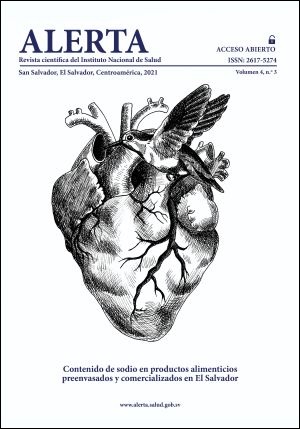Prosthetic rehabilitation in pediatric dentistry and its effects on the behavioral modification of a child
DOI:
https://doi.org/10.5377/alerta.v4i3.10891Keywords:
Pediatric rehabilitation, child, early childhood caries.Abstract
Untreated early childhood caries affects multiple teeth in children and causes severe destruction of tooth structure, requiring complex treatments and in some cases removal of the affected tooth. The case report on the comprehensive rehabilitation, with a preventive and psychosocial approach, of a 6-year-old male patient with multiple loss of primary teeth is presented; and how this contributes to improving their quality of life, self-esteem and social interaction. The treatment plan included a phase of behavioral adaptation to the dental consultation, elimination of carious lesions and dental restoration, extraction of severely damaged teeth and elaboration of two removable prostheses. As the rehabilitation treatment progressed, there was a favorable change in the child's behavior during dental treatments, from a negative behavior to a positive one, and also when interacting with other people, showing himself more active and confident, seeking to talk and participate in games with others children. These changes can be attributed to the perception by the patient of the improvements in the aesthetics of their teeth. Prosthetic dental rehabilitation contributed to recovering the child's chewing and phonation functions, and also caused a positive psychological impact on him. By improving their dental aesthetics, there was an important change in behavior, which shows how important it is for the child that their teeth look good in order to feel good. All this indicates an improvement in their self-esteem and quality of life.
Downloads
1617
Downloads
Published
How to Cite
Issue
Section
License
Copyright (c) 2021 Alicia Margarita García Guzmán, Stefany María Santos Anaya, Mirna Tatiana Fuentes Caballero, Milena Elizabeth Olmedo Menjívar, Karen Lisseth Arias Comayagua, Oscar Armando Gómez López

This work is licensed under a Creative Commons Attribution 4.0 International License.
Privacy statement:
Alerta articles are published under license Creative Commons 4.0 CC BY: https://creativecommons.org/licenses/by/4.0/
Authorship rights
Revista Alerta gives the authors exclusive control of their work and the right to be acknowledged and cited.





